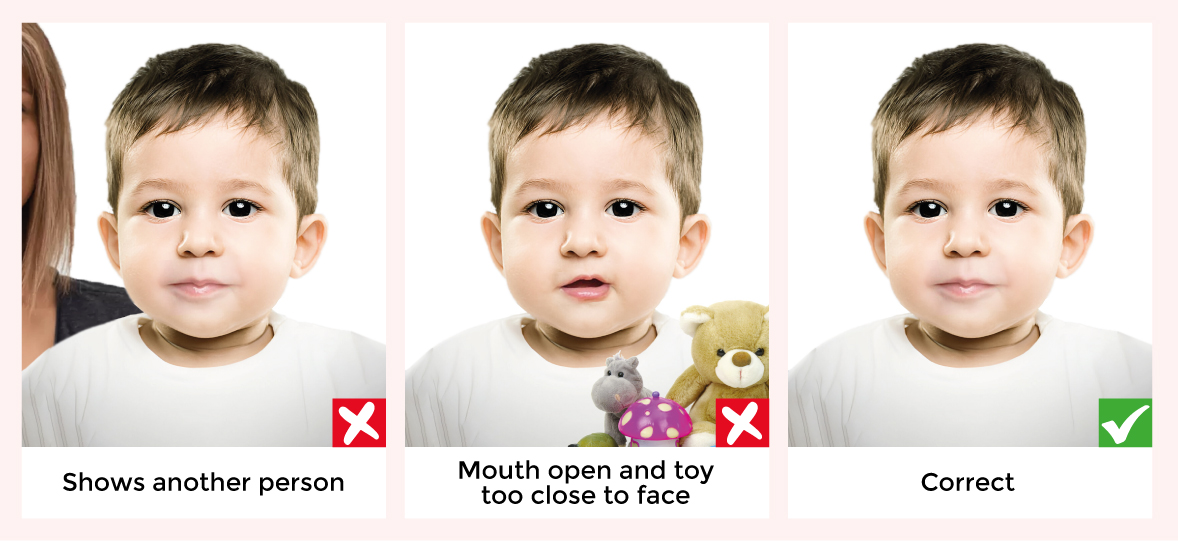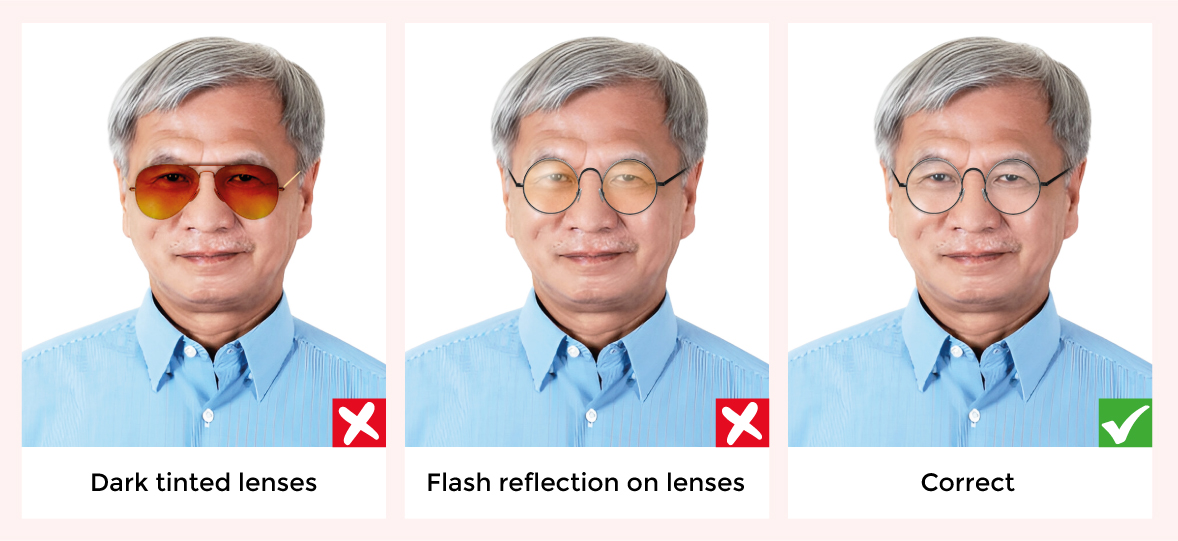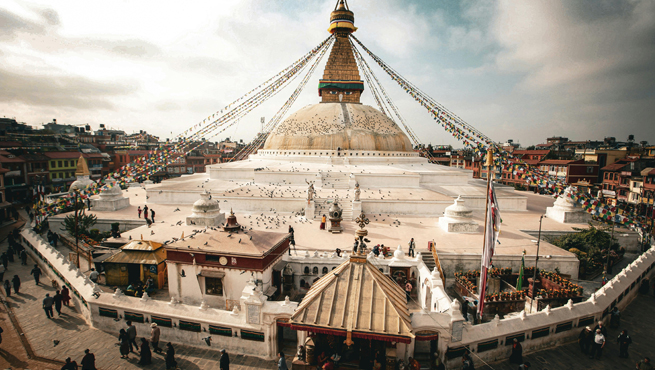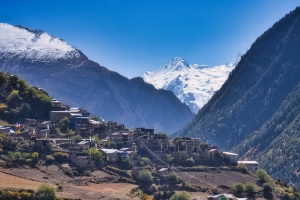- Nepal Visa Photo Format Requirements
- Nepal Visa Photo Size, Age & Background
- Nepal Visa Photo Attire & Accessories
- Nepal Visa Photo Requirements for Children under 1 year
- Nepal Visa Photo Requirements for Children under 10 Years
- Reasons for Nepal Visa Photo Rejections
- Why Choose OneVasco?
- Frequently Asked Questions
Nepal Visa Photo Format Requirements
While Indians don’t need a visa for Nepal, you still need proper photos for your travel documents. Here’s what you need to know about Nepal visa photo requirements:
| Document | Photo Form | Quantity | Format | File Size |
| Entry Document | Printout | 2 | Colour | N/A |
| Online Registration | Electronic | 1 | JPEG/PNG | Max 1MB |
Note: The online registration is optional but recommended for faster entry.
Nepal Visa Photo Size, Age & Background
Photo Size in MM
The standard Nepal visa passport photo size is 35mm x 45mm.
Photo Size in CM
In centimeters, the photo sizes of Nepal visa should be 3.5cm x 4.5cm.
Photo Size in Inch
For those used to inches, the size is approximately 1.38 x 1.77 inches.
Photo Size in Pixels
If you’re submitting a digital photo, aim for 600 x 750 pixels. This ensures good quality when printed.
Age of the Photo
Your tourist passport size photo Nepal should be recent, taken within the last 6 months. This helps border officials identify you easily.
Photo Matte or Glossy
Both matte and glossy finishes are acceptable. Just make sure the photo is clear and of good quality.
Colour
Based on the Nepal visa photo guidelines, always use a coloured photo. Black and white photos are not accepted for Nepal entry documents.
Background
The background must be plain white. There should be no shadows, objects, or patterns visible. Make sure the background is evenly lit and free from any textures or designs.
Lighting
Good lighting is crucial. The photo should be well-lit, with even lighting across your face and the background. Avoid harsh shadows or bright spots. Natural light often works best, but avoid direct sunlight that can cause squinting.
Facial Appearance/Size
Your face should take up about 70-80% of the photo. The distance from your chin to the top of your head should be between 32mm and 36mm. This ensures your face is clearly visible without being too close or too far.
Face Orientation
Face the camera directly. Your head should be straight, not tilted or turned. Both ears should be visible (unless covered by hair or religious headwear). Keep your shoulders square to the camera.
Expression
Maintain a neutral expression. No smiling or frowning. Keep your mouth closed and look straight into the camera. Your eyes must be open and clearly visible. Avoid hair covering your eyes, and make sure your gaze is directly at the camera.
Suggested Read: Nepal Visa Rejection For Indian
Nepal Visa Photo Attire & Accessories
Attire
Wear everyday clothing. There’s no need for formal attire. Choose clothes in colors that contrast with the white background. Avoid white tops as they may blend into the background. Ties and bow-ties are fine but not required.
Accessories
Glasses/Spectacles
If you normally wear glasses, you can keep them on. Make sure there’s no glare on the lenses. The frames shouldn’t cover your eyes. If possible, consider removing your glasses for the photo to avoid any issues.
Health Accessories
Necessary health accessories like hearing aids are allowed. They shouldn’t obstruct your face or create shadows.
Jewelry
Keep jewelry minimal. Small earrings and necklaces are fine, but avoid large pieces that might distract from your face.
Headwear
Religious headwear is allowed if you wear it daily. It must not cover your face or cast shadows. Other types of hats or head coverings are not permitted.
Makeup
Light, everyday makeup is fine. Avoid heavy makeup that might alter your appearance. Mascara and light lipstick are okay. Fake eyelashes should be avoided if they change your natural look significantly. Hair wigs and colored hair are acceptable if they’re part of your everyday appearance.
Suggested Read: How To Check Nepal Entry Requirements For Indians
Nepal Visa Photo Requirements for Children under 1 year

Requirements
Taking photos of babies can be tricky, but Nepal’s rules are quite flexible:
- The baby’s eyes should be open if possible, but it’s okay if they’re closed.
- The baby should be the only person in the photo. Parents shouldn’t be visible.
- You can lay the baby on a white sheet. Make sure no toys or pacifiers are visible.
- If needed, you can support the baby’s head with your hand, but try to keep your hand out of the photo.
- The baby’s face should be clearly visible and take up most of the photo.
- It’s okay if the baby’s mouth is open or if they’re not looking directly at the camera.
Remember, the main goal is to get a clear photo of the baby’s face. Don’t worry too much if it’s not perfect – border officials understand the challenges of photographing infants.
Nepal Visa Photo Requirements for Children under 10 Years
Requirements
For older children, the rules are a bit stricter, but still considerate:
- Children’s eyes must be open and looking at the camera.
- They should have a neutral expression. It’s okay if they’re not smiling.
- The child should be the only person in the photo. Parents or siblings shouldn’t be visible.
- For very young children who can’t sit up alone, you can use a car seat covered with a white sheet. Make sure the seat isn’t visible in the photo.
- The child’s whole face should be visible. Hair shouldn’t cover their eyes or face.
- If the child wears glasses, make sure there’s no glare on the lenses.
- The background should be plain white, just like for adults.
Remember, the photo should look like the child’s everyday appearance. Don’t dress them up specially for the photo or change their hairstyle dramatically.
Reasons for Nepal Visa Photo Rejections




Incorrect Photo Size or Quality
One of the most common reasons for photo rejection is incorrect size or poor quality. Nepal requires photos to be 35mm x 45mm, which is about 1.38 x 1.77 inches. If your photo is too big or too small, it will be rejected.
Also, the photo must be clear and in focus. Blurry or pixelated photos won’t be accepted. This is why it’s important to get your photos taken by a professional or use a high-quality camera if you’re taking them yourself.
Incorrect Background or Lighting
The background of your photo is just as important as the subject. Nepal requires a plain white background with no patterns, shadows, or objects visible. If your photo has a colored background or shows any furniture or decorations, it will be rejected. Even slight shadows can cause problems, so make sure the lighting is even across the entire photo.
Inappropriate Facial Expression or Pose
Your expression and pose in the photo are very important. Nepal requires a neutral expression – no smiling, frowning, or other facial expressions. Your mouth should be closed and your eyes open, looking directly at the camera. If you’re smiling or have any other expression, your photo will likely be rejected. Your face should be square to the camera, not turned or tilted.
Obstructed Face or Eyes
Anything that obstructs your face or eyes can lead to photo rejection. This includes hair covering your face, sunglasses, or tinted lenses. If you wear glasses, make sure there’s no glare on the lenses and that the frames don’t cover your eyes.
It’s often best to remove glasses for the photo if possible. Hats or head coverings are not allowed unless they’re worn for religious reasons and are part of your everyday attire.
Incorrect Attire or Accessories
While there’s no strict dress code for Nepal entry document photos, certain types of clothing and accessories can cause problems. Avoid wearing white clothes, as they can blend into the white background. Uniforms or camouflage clothing are not allowed.
Bright, reflective jewelry can cause glare or distract from your face, so it’s best to keep jewelry minimal. Heavy makeup that significantly alters your appearance can also lead to rejection.
Why Choose OneVasco?
OneVasco makes visa applications effortless. Our expert team manages the entire process, allowing you to focus on your journey.
Enjoy stress-free travel with fast visa approvals.
- Expert and Personalized Support
- Efficient and Hassle-Free Process
- Real-Time Tracking and Updates
- Transparent Communication
- Trusted by Millions
Frequently Asked Questions
What is the standard size for visa photos for Indian citizens in Nepal?
The standard size for Nepal visa photos is 35mm x 45mm. Use this size to avoid issues, as 1.5″ x 1.5″ is not commonly needed for Nepal visas.
Can I use a photo with a coloured background for my Nepal visa application?
No, you cannot use a photo with a colored background for your Nepal visa application. The background of the visa photo must be plain white. Using a photo with any other background may result in rejection of your application.
Are glasses allowed in visa photos?
Glasses are generally not recommended in Nepal visa photos. If you must wear glasses, ensure that the frames do not cover any part of your eyes. However, it is best to remove glasses altogether to avoid potential issues with your visa application.
What facial expression should I have in my visa photo?
For Nepal visa photos, maintain a neutral facial expression.. Your mouth should be closed, and your eyes should be open and looking directly at the camera.
What should I do if my visa photo is rejected?
If your visa photo is rejected, retake the photo according to the specified requirements. Ensure the new photo meets all criteria, including size, background, lighting, and facial expression.
Are there specific requirements for infant visa photos?
Yes, there are specific requirements for infant visa photos for Nepal:
- Use a white backdrop.
- For infants who cannot stand, take the photo from above.
- Ensure the face is clearly visible and eyes are open.
- Avoid shadows or reflections on the face or background.
Disclaimer: Visa requirements can change over time. While we strive to provide the most current information, it’s always best to verify the latest Nepal visa photo requirements directly with the Netherlands embassy or consulate before submitting your application.





















